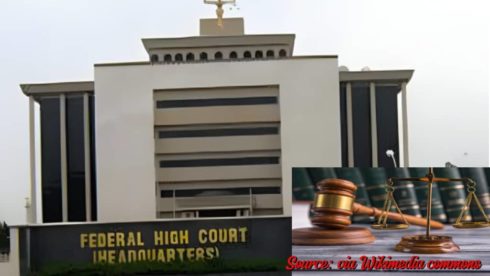The Federal High Court in Abuja has granted a request by the Nigeria Police Force to remand 124 #EndBadGovernance protesters for 60 days. Justice Emeka Nwite issued the order after hearing ex-parte motions presented by the police. This decision allows authorities to detain the protesters while investigations into their alleged criminal activities continue.
The protesters were arrested during recent demonstrations against perceived bad governance in Nigeria. Federal High Court’s ruling has sparked a heated debate about the balance between maintaining public order and protecting citizens’ rights to peaceful protest. Legal experts are closely watching the case, as it may set a precedent for how similar situations are handled in the future.
Legal Implications and Concerns
Federal High Court’s decision to grant a 60-day remand has raised significant concerns among legal professionals and human rights advocates. Many argue that such a lengthy detention period without formal charges violates the protesters’ fundamental rights as guaranteed by the Nigerian Constitution. The ruling has also sparked fears of potential abuse of power by law enforcement agencies.
Lawyers representing the detained protesters have announced their intention to challenge Federal High Court’s decision. They argue that the remand order is disproportionate and lacks sufficient legal grounds. The case is expected to move to higher courts, potentially leading to a landmark ruling on the rights of protesters in Nigeria.
Police Allegations Against Demonstrators
According to the police, the detained protesters face allegations of conspiracy, unlawful assembly, and inciting public disturbance. Law enforcement officials claim to have evidence linking the demonstrators to various criminal activities during the protests. These accusations form the basis of the police’s request for extended detention.
However, the protesters and their supporters vehemently deny these allegations. They maintain that their actions were within the bounds of peaceful protest and protected by constitutional rights to freedom of assembly and expression. The conflicting narratives have intensified public scrutiny of the case, with many calling for transparency in the investigation process.
Erosion of Protesters’ Rights
The remand order has amplified concerns about the erosion of protesters’ rights in Nigeria. Civil society organizations argue that the government’s response to the #EndBadGovernance movement demonstrates a worrying trend of suppressing dissent. They fear that such actions may deter citizens from exercising their democratic right to protest in the future.
International human rights organizations have also weighed in on the situation. Several have issued statements calling on the Nigerian government to respect the rights of peaceful protesters and ensure due process is followed. The case has drawn global attention to the broader issue of civil liberties in Nigeria and other developing democracies.
Federal High Court: Public Outrage and Social Media Response
Federal High Court’s decision has ignited a firestorm of outrage on social media platforms. Hashtags such as #FreeTheProtesters and #EndBadGovernance have trended nationwide, with citizens expressing their disappointment and anger at the ruling. Many view the detention as an attempt to silence critics of the government and stifle the growing movement for better governance.
Prominent figures, including celebrities, politicians, and civil rights activists, have joined the online protest. They are using their platforms to raise awareness about the detained protesters and call for their immediate release. The Nigerian Bar Association has also issued a strong statement condemning the court’s decision, describing it as a dangerous precedent that threatens the rule of law.
Legal Challenges and Future Prospects
The legal team representing the detained protesters is preparing to mount a robust challenge against the remand order. They plan to file appeals in higher courts, arguing for the immediate release of their clients. The lawyers are also pushing for a speedy trial, emphasizing the importance of upholding the principle of presumption of innocence.
As the case unfolds, it is likely to have far-reaching implications for civil liberties and the right to protest in Nigeria. The outcome may influence future government responses to demonstrations and shape public perception of the judicial system’s independence. Despite the current setback, supporters of the #EndBadGovernance movement remain resolute in their determination to advocate for better governance and accountability in Nigeria.
Table of Contents
Discover more from OGM News NG
Subscribe to get the latest posts sent to your email.














